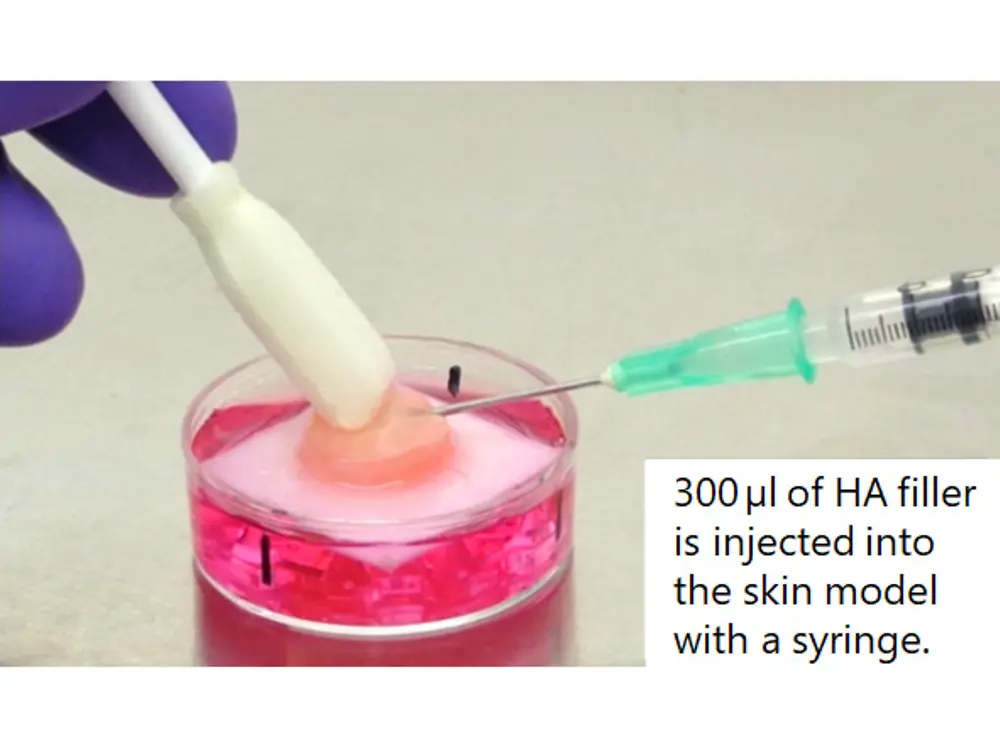Scientists of the Maastricht University (NL) and the National Institute for Public Health and Environment (RIVM, NL) have published the results of a study intended to understand the molecular effects of hyaluronic acid (HA)-based filler materials in skin tissues. HA dermal fillers are widely applied in non-surgical aesthetic treatments. However, adverse effects like swelling, erythema, and eventually granulomatous foreign body reactions were observed in patients after HA applications. In order to analyze those effects in more detail and under standardized conditions, as well as to identify material-linked characteristics which might cause the reported side-effects, HA formulations were injected into Phenion FT Skin Models (see picture), followed by a gene expression analysis after a 24-hour incubation period with the fillers.
Nov 7, 2022
New study published about adverse reactions after hyaluronic acid-based fillers in Phenion Full-Thickness Skin Models
Taken together, the Phenion FT Skin Models are well suited for analyzing molecular reactions after injections with HA filler material. Due to its unique mechanical properties, the experimental procedure was well tolerated by the tissue models, and the gene expression results were in line with the clinical observations. With this kind of information unexpected side effects of dermal fillers could be better predicted in advance and might help to develop less harmful formulations for aesthetic purposes.
Jennen et al.: Transcriptomic analysis in human 3D skin model injected with resorbable hyaluronic acid fillers reveals foreign body response. Int. J. Mol. Sci. 2022, 23, 13046.

